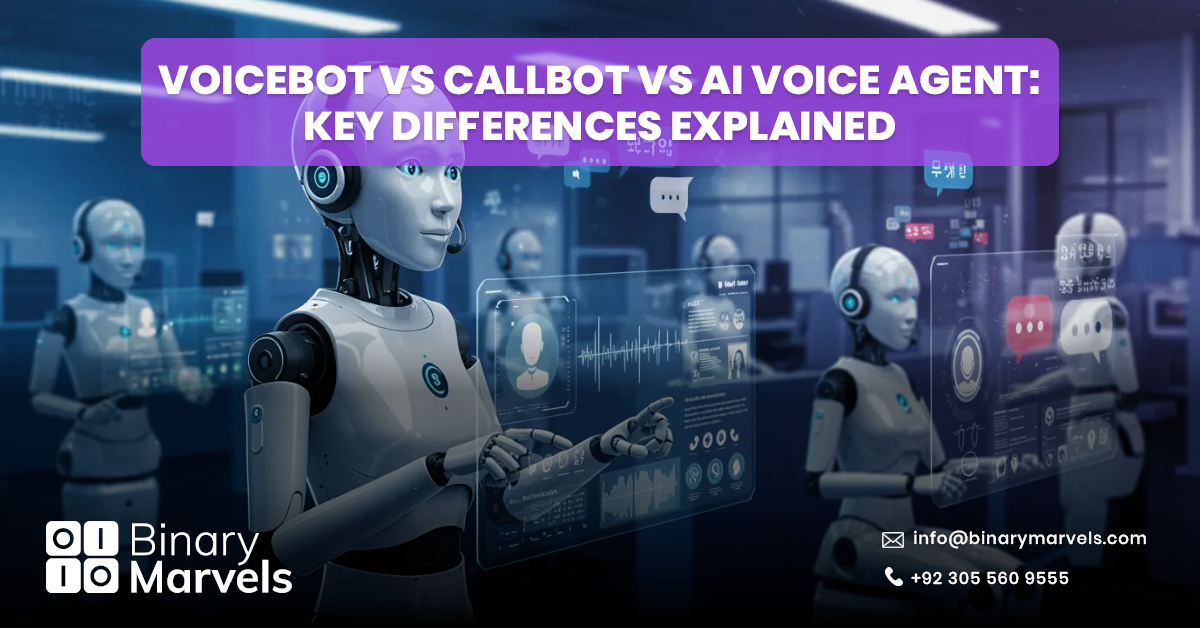
Tired of long hold times at hospitals or clinics?
As healthcare systems face rising patient demands and staffing shortages, delays in communication have become a serious issue—impacting both patients and providers. AI voice agents are stepping in to solve this challenge by transforming how healthcare organizations interact with patients—reducing wait times, automating routine tasks, and streamlining operational workflows.
In this article, we’ll explore how AI Voice Agents in Healthcare are revolutionizing the industry with real-world benefits, proven use cases, and a glimpse into the future of voice-driven care.
What Are AI Voice Agents?
AI voice agents are intelligent, speech-powered systems that use natural language processing (NLP) and machine learning to understand, interpret, and respond to human speech—just like a real person. In the healthcare context, they act as virtual front-desk assistants, handling patient calls, answering common questions, booking appointments, and much more.
Unlike traditional IVRs (Interactive Voice Response systems) that follow rigid, touch-tone menus, AI voice agents can understand natural speech, hold dynamic conversations, and adapt based on the caller’s intent. This makes interactions faster, more human-like, and significantly less frustrating for patients.
Healthcare-specific voice agents are often trained to understand medical terminology, patient workflows, and even offer multilingual support, making them highly effective in diverse clinical environments.
Also Read: Revamp Your Call Center with VICIDial Development Services
Why Healthcare Needs AI Voice Agents?
The healthcare industry is under constant pressure to do more with less—fewer staff, tighter budgets, and increasing patient demands. Traditional call centers and administrative teams are struggling to keep up, often leading to long hold times, delayed responses, and overwhelmed staff.
1. Rising Call Volumes:
Hospitals, clinics, and pharmacies receive thousands of calls daily—from appointment scheduling to prescription refills and lab result inquiries. Managing this volume manually is inefficient and costly.
2. Staff Shortages & Burnout:
With many healthcare facilities facing staffing challenges, front-desk teams are often overburdened, leading to mistakes, slower service, and burnout.
3. 24/7 Patient Expectations:
Today’s patients expect round-the-clock support. AI voice agents can provide instant answers and assistance at any time, even outside of normal office hours.
4. Demand for Faster, Smarter Care:
As patient satisfaction becomes a top priority, speed and efficiency in communication play a key role. AI voice agents meet this demand by offering quick, accurate, and consistent service.
Key Benefits of AI Voice Agents in Healthcare
AI voice agents are more than just a time-saving tool—they’re transforming the way healthcare providers interact with patients, manage resources, and deliver services. Below are the key benefits driving their adoption across clinics, hospitals, and healthcare call centers.
1. Cut Patient Wait Times
AI voice agents respond instantly—no more being placed on hold or waiting for office hours. They handle high call volumes with ease, providing immediate assistance for common tasks like:
- Booking or rescheduling appointments
- Providing test result updates
- Answering FAQs (clinic hours, directions, insurance info)
This helps reduce bottlenecks and speeds up communication between patients and healthcare providers.
2. Boost Administrative Efficiency
Repetitive queries drain staff time and focus. AI voice agents can automate:
- Prescription refill requests
- Eligibility checks and insurance verifications
- Pre-visit instructions or follow-up reminders
By automating these routine tasks, human staff can focus on complex, high-value interactions.
3. Improve Patient Experience
AI voice agents offer a natural, conversational interface that is:
- Available 24/7
- Multilingual and culturally adaptable
- Consistent and polite every time
This leads to higher patient satisfaction, better engagement, and improved retention.
4. Ensure Compliance and Data Security
Healthcare-specific AI voice agents are designed with security in mind. Features include:
- HIPAA/GDPR compliance
- Secure voice authentication
- Encrypted data storage and access controls
Patients can trust that their sensitive health information is handled safely.
Also Read: A Guide to AI Voice Agent Development
Real-World Use Cases in Healthcare
AI voice agents are no longer experimental—they’re already delivering real results across various healthcare settings. Here are some key areas where they’re actively making an impact:
1. Hospital Call Centers
Large hospitals receive thousands of calls daily. AI voice agents help manage this load by handling:
- Appointment confirmations and reminders
- Triage of patient queries
- Transfer to the appropriate department when human assistance is needed
This reduces call abandonment rates and ensures smoother patient communication.
2. Clinics and Primary Care Practices
Smaller practices benefit from AI voice agents by automating:
- Routine appointment scheduling
- Answering insurance-related questions
- Providing location, hours, and policy info
It’s like having an extra receptionist—without the added salary or burnout.
3. Pharmacies and Prescription Services
AI voice agents assist with:
- Automated prescription refill requests
- Medication reminders
- Pickup status notifications
This enhances medication adherence and cuts down on manual call handling.
4. Telemedicine Platforms
Voice agents help users navigate virtual care platforms by:
- Guiding them through account setup
- Answering technical support queries
- Booking virtual consultations
This leads to better digital experience and reduced no-show rates.
5. Health Insurance Providers
For insurers, AI voice agents can:
- Help members find in-network providers
- Check coverage eligibility
- Provide updates on claims or authorizations
They reduce call center costs and improve member satisfaction.
Also Read: Top 10 AI Companies in Pakistan
Challenges and Considerations
While AI voice agents bring significant benefits to healthcare, their implementation isn’t without challenges. It’s essential to be aware of potential limitations and plan accordingly to ensure a smooth, secure, and effective rollout.
1. Accent, Language, and Speech Clarity
AI voice agents may struggle with:
- Strong regional accents or speech impairments
- Background noise on patient calls
- Code-switching between languages or dialects
Solutions include advanced speech recognition models, continuous training, and fallback options to transfer to human agents when needed.
2. Data Privacy and Compliance
Healthcare organizations must ensure full compliance with:
- HIPAA in the U.S.
- GDPR in Europe
- Local data protection laws in other regions
AI systems must be designed with encryption, secure authentication, and limited data access to avoid breaches or non-compliance.
3. Integration with Existing Systems
Voice agents must work seamlessly with:
- Electronic Health Records (EHR/EMR)
- Appointment scheduling software
- CRM and call center platforms
Without proper integration, the AI may function in isolation and limit its usefulness.
4. Limitations in Handling Complex Scenarios
While AI voice agents are excellent at handling repetitive, structured tasks, they still struggle with:
- Emotionally sensitive conversations
- Ambiguous or open-ended medical questions
- Emergency situations
It’s vital to have built-in escalation protocols so the AI can quickly route such calls to trained human staff.
Future Outlook of AI Voice in Healthcare
As technology advances, AI voice agents in healthcare are evolving from basic assistants to intelligent, context-aware collaborators. The future holds exciting possibilities that will further enhance patient care and operational performance.
1. Integration with Generative AI
Future voice agents will do more than just respond—they’ll summarize patient calls, generate notes for electronic health records (EHR), and assist doctors with real-time documentation. This reduces admin load and gives providers more time for patient care.
2. Predictive Assistance and Triage
AI voice agents could use patient data and symptoms to offer basic triage, guiding patients to the right level of care (urgent care, telehealth, ER, etc.). This helps optimize resource use and reduce unnecessary hospital visits.
3. Personalized Voice Assistants for Chronic Care
Patients with chronic illnesses could receive ongoing voice-based support—reminders for medication, check-in calls, or health tips tailored to their condition. This boosts engagement and improves long-term outcomes.
4. Voice Biometrics and Emotional AI
Emerging tech will allow AI voice agents to detect emotions, stress, or fatigue in a patient’s voice, helping providers identify potential issues sooner. Voice biometrics may also offer secure, hands-free authentication.
5. Multilingual and Cultural Adaptation
Future voice systems will be able to dynamically adapt to different languages, accents, and cultural contexts, making healthcare more inclusive and accessible for global populations.
How to Implement AI Voice Agents in Your Healthcare Facility?
Deploying AI voice agents in a healthcare setting requires thoughtful planning, the right technology, and seamless integration with existing systems. Here’s a step-by-step guide to get started:
1. Identify Use Cases
Begin by assessing which tasks are ideal for automation. Common examples include:
- Appointment scheduling
- Prescription refill requests
- Insurance verification
- Lab result notifications
Start with low-risk, high-volume processes to build trust and gather data.
2. Choose the Right AI Voice Platform
Select a solution tailored to healthcare, with features like:
- HIPAA or GDPR compliance
- Medical terminology support
- Multilingual capabilities
- Easy integration with your existing software (EHR, CRM, etc.)
Evaluate vendors on scalability, reliability, and voice recognition accuracy.
3. Integrate with Your Existing Systems
To be effective, your AI voice agent must connect to:
- Electronic Health Records (EHR/EMR)
- Contact center platforms
- Patient portals or mobile apps
Work with your IT team or vendor to ensure real-time data sync and privacy controls.
4. Train Staff and Set Up Escalation Paths
Ensure your front-desk and support staff are trained to:
- Monitor AI interactions
- Step in when needed (e.g., escalations or exceptions)
- Interpret insights from AI-generated reports
Human oversight is key to maintaining service quality and patient satisfaction.
5. Monitor, Optimize, and Scale
Track key metrics such as:
- Call resolution rates
- Average handling time
- Patient feedback
Use these insights to improve responses, expand into more use cases, and continuously fine-tune the system.
Supercharge Your Business with AI Today!
As a trusted AI Development Company in Pakistan, we deliver cutting-edge AI Development Services designed to streamline your operations and enhance customer engagement.
Don’t wait—connect with us now and take your business to the next level!
Conclusion
AI voice agents in healthcare are no longer a futuristic concept—they’re a practical, powerful solution to some of the industry’s biggest challenges. By reducing patient wait times, automating routine tasks, and streamlining communication, they enable healthcare providers to focus more on care and less on admin.
From hospitals and clinics to pharmacies and insurers, the benefits are clear: faster service, greater efficiency, and improved patient experiences. While challenges like integration and compliance must be carefully managed, the potential of AI voice technology in healthcare is undeniable.
As patient expectations evolve and demand for smarter care increases, now is the time to explore how AI voice agents can transform your healthcare operations.
FAQ: AI Voice Agents in Healthcare
1. Are AI voice agents in healthcare HIPAA-compliant?
Yes, many healthcare-focused AI voice solutions are designed to meet HIPAA and other regional data privacy standards. Always verify a vendor’s compliance credentials before implementation.
2. Can AI voice agents handle emergency calls?
No. AI voice agents are best suited for routine, non-emergency tasks. Emergency calls should be immediately routed to human professionals or emergency services.
3. How are AI voice agents different from chatbots?
AI voice agents communicate through speech and are designed to handle live conversations, while chatbots operate via text. Voice agents offer a more natural, hands-free experience, especially helpful for patients on the go.
4. What kind of ROI can healthcare providers expect?
AI voice agents reduce operational costs, improve patient satisfaction, and free up staff for higher-value tasks. Many providers report a measurable return on investment within the first 6–12 months.
5. Do AI voice agents work in multiple languages?
Yes. Leading platforms support multilingual capabilities, enabling providers to serve diverse patient populations more effectively.









